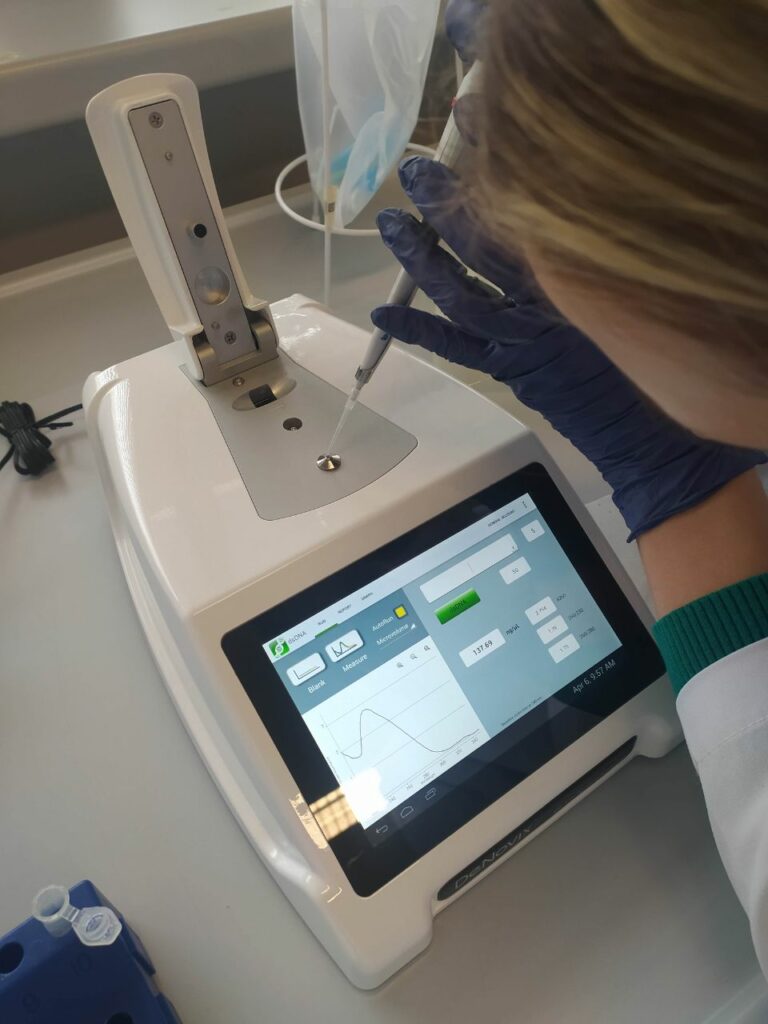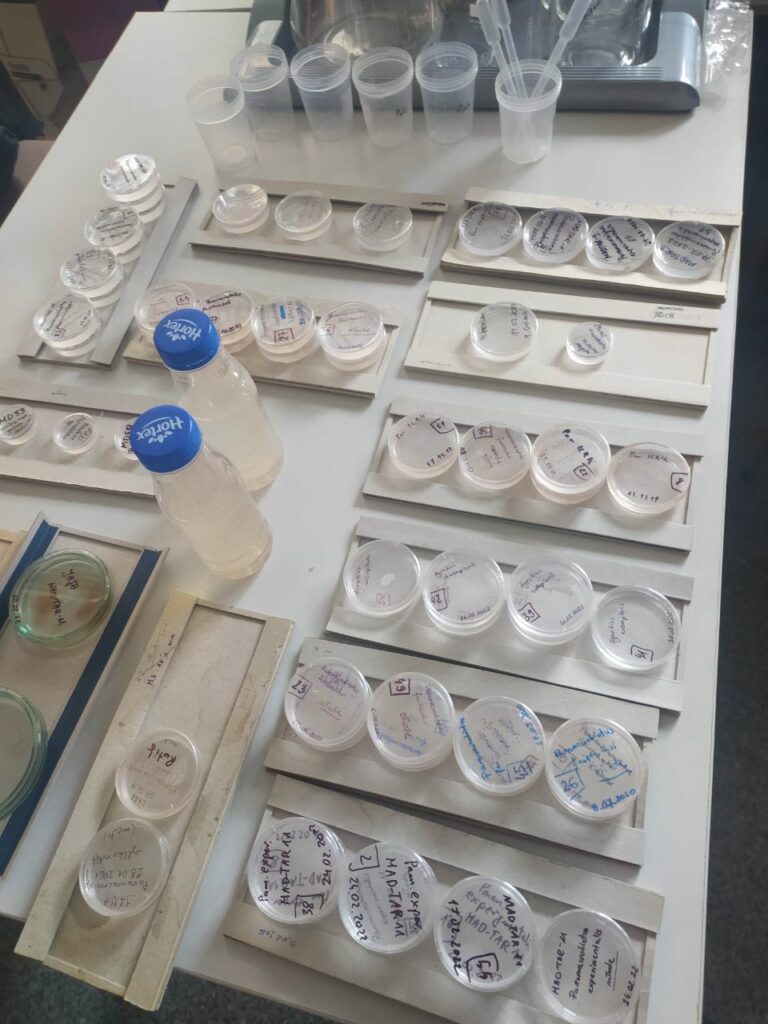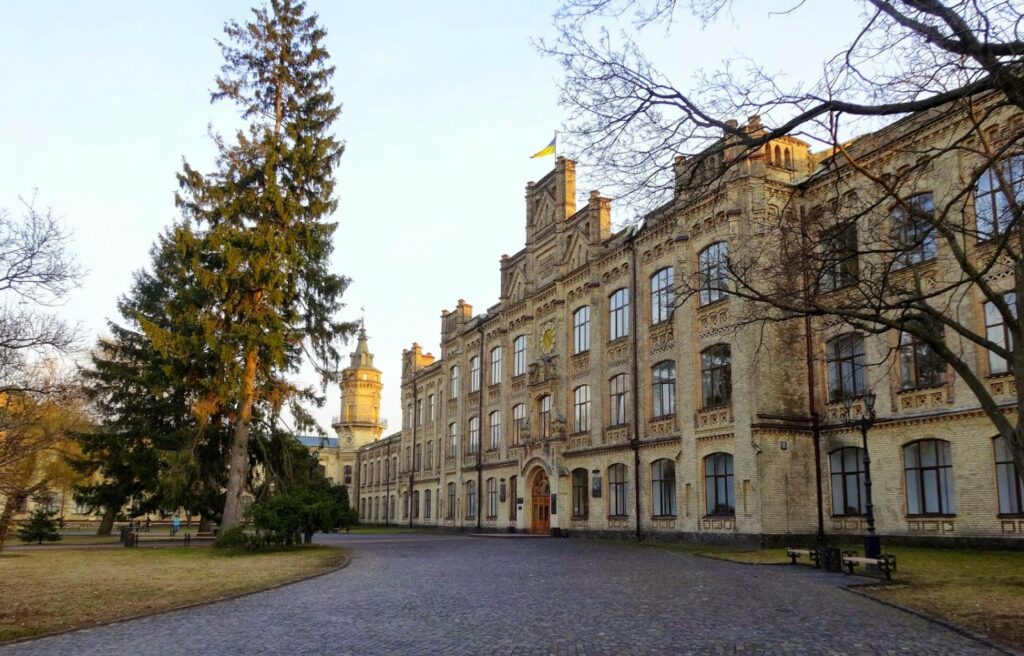
How Ukrainians affected by war can continue their studies in Europe: Polish universities supporting proactive Ukrainian students
Since Russia’s full-scale invasion of Ukraine began on 24 February, 2022, many Ukrainian students have been forced to leave their homes and places of study and look for new opportunities to continue their education. In response, many European universities have offered their support to Ukrainian students by enrolling them on their courses, reducing or waiving tuition fees, and providing scholarships.
In this blog, four Ukrainian Young European Ambassadors (YEAs) affected by war share their experience, why they have decided to continue their studies in Europe, where they found their desired programmes, how the application process worked, and what their studies are like now. They were interviewed by Ukrainian YEA Vladyslava Vertogradska during the week of April 4-10, 2022. She is a fourth-year student majoring in Contemporary Communication at LCC International University in Klaipeda, Lithuania. Originally, she is from Donetsk, but her family moved to Ivano-Frankivsk in 2014 due to the Russian occupation of the territory. Currently, she is finishing her last semester at the university, while volunteering for a Kyiv-based organisation that translates news into English and carries out fact-checking.
In the first part of the blog, we met Vitalina Shevchenko and learnt about 100 places for Ukrainian students at universities in Castilla y León region in Spain. In the second part, we found out how the University of Zurich is expressing solidarity with Ukraine by accepting Ukrainian students from Bohdana Batsko. And in the third part, Victoria Kulyniak told us how the Ukrainian Catholic Universityis teaming up with European universities.
Finally, meet Nadiia Kasianchuk – a 20-year-old third-year student from Ternopil, majoring in biotechnology at the Kyiv Polytechnic Institute, and pharmacy at Bogomolets National Medical University. She spent the first month of the war in Ternopil helping with logistics, translations, and communication at the local humanitarian aid centre. “Volunteering helped me to survive mentally – when you are working the whole day (even if productivity is not very high), it is much easier not to check the news every two minutes,” she added. Nadiia went through an emotional rollercoaster, from despair to exaltation to aggression. “Even now, living in a peaceful country, I still cannot handle such a fragile mental state – once I started crying in the main street of Poznan only because I’d heard a song in Ukrainian,” she said.
Nadiia said she hadn’t initially planned to leave Ukraine and continue her studies abroad. “Obviously, I was checking some websites and databases with opportunities for Ukrainian youth, but I didn’t plan to leave Ukraine, so I wasn’t even trying to apply,” she said. Sending an application to her current university, Adam Mickiewicz University in Poznan, Poland, was a spontaneous decision: “My acquaintances encouraged me to apply to the university here because it is one of the best scientific institutions in Poland.” It was not a publicly available youth opportunity or an offer, Nadiia contacted the university herself.
“There was no ‘typical’ application process,” she continued. Nadiia sent out her CV, statement of purpose, and transcripts to the professors and the dean. She did not expect an answer, she just sent an email to establish a bond with the university and hopefully come there for an exchange or an internship in the future. “But then, everything happened unbelievably fast – after some days, my application was approved and a week later, I was staying at the university and signing all the necessary documents for transfer,” she said. Nadiia never thought it would be such a tough decision whether to accept the offer or not: “I convinced a lot of my friends to move for studying or internships if they have such opportunities, but the hardest challenge was to convince myself!” From her personal experience, she advises all young people to be prepared for everything since the semester has already started and the professors ask students to come a day or two after receiving an offer.
“I study at the Adam Mickiewicz Universityat the Faculty of Biologyfor free and receive a need-based scholarship, which is sufficient to cover all the main expenses in Poland,” Nadiia explained. She was also provided with accommodation and a free intensive Polish language course. “And of course, I have an opportunity to work in the laboratory and conduct research related to my field of study – and, believe me, there is a lot of work to do!” she added
Nadiia also has an interesting story regarding her trip to a new university: “I was joking that my family exchanged me for humanitarian aid. We were hosting a man from Warsaw, who had delivered medications to Ukrainian hospitals. When we told him that I received a study offer in Poland, he proposed to take me to Warsaw and then help with further transportation. Because of the ‘aid’ signs, we crossed the border pretty fast, and then I took a train from Warsaw to Poznan.”
Nadiia’s advice to all Ukrainian students affected by war is the following: “Do not wait for the opportunity to find you – create opportunities by yourself. Be proactive and follow your dreams regardless of the situation. Trust me, there are so many good people ready to help you these days!”
LATEST

How you can help the planet every day

Building Europe: Poland’s experience of joining the European Union and lessons for Ukraine

World Health Day 2024: My Health, My Right

EUREKA MEETS EUROPE – opportunities to develop and study. My experience

Can you wear pink in the workplace?
More campaign pages:
Interested in the latest news and opportunities?
This website is managed by the EU-funded Regional Communication Programme for the Eastern Neighbourhood ('EU NEIGHBOURS east’), which complements and supports the communication of the Delegations of the European Union in the Eastern partner countries, and works under the guidance of the European Commission’s Directorate-General for Neighbourhood Policy and Enlargement Negotiations, and the European External Action Service. EU NEIGHBOURS east is implemented by a GOPA PACE-led consortium. It is part of the larger Neighbourhood Communication Programme (2020-2024) for the EU's Eastern and Southern Neighbourhood, which also includes 'EU NEIGHBOURS south’ project that runs the EU Neighbours portal.

The information on this site is subject to a Disclaimer and Protection of personal data. © European Union,


